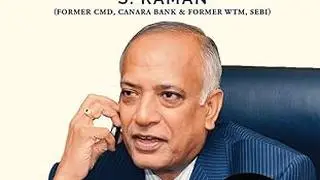The 1980s saw a big increase in the number of women as political journalists. I was privileged to work, at different times, at the Indian Express in Delhi when they, too, were there.
Coomi Kapoor, Aarati Jerath, Shehnaz Anklesaria-Aiyar, Kalpana Sharma, Pushpa Girimaji, Seema Mustafa, Sheila Bhatt and, last but not least, Neerja Chaudhary. There were, of course, many more in other newspapers.
Some of them have already written books and it’s marvellous that Neerja has now joined the group. The title of her book is intended to make you buy it. It’s not cheap but at about ₹2/- per page, it’s a bargain because there’s so much information in it. All of it is contemporary history. Along the way, we get many surprises.
Neerja, consciously or unconsciously, has adopted the racy style that Bob Woodward and Carl Bernstein pioneered in their book, All The President’s Men. She has chosen half-a-dozen major topics and written about how different prime ministers decided how to deal with them. The result is a cracking good read. It’s the kind of book every political journalist wants to write.
The problem, however, is that it also deals with people who most people have nearly forgotten. Who remembers SB Chavan, for example, or ML Fotedar and RK Dhawan and Arun Nehru and so many others? A little bit more context to these persons would have helped, perhaps.
The inside dope
The book tells many inside stories of how things happened, who the major actors were — the people mentioned above, for example — and how well or badly they got along or what they thought of each other. No one emerges as being uniformly wise or nice.
But prime ministers are different. They make truly gigantic mistakes, when they choose the wrong option. This book describes those incidents. But it doesn’t quite tell us why they took the decisions they did. Image and political considerations apart, could there have been other factors?
What emerges from the book, but not explicitly, is that good prime ministers need not be good politicians and good politicians need not be good prime ministers. It’s rare to find someone who has both qualities, like Indira Gandhi, Narasimha Rao, Atal Bihari Vajpayee, and Narendra Modi. Two were re-elected and two were not. The better ones were not.
That’s just four out of 15 PMs since 1947. Their rule adds up to about 38 years out of 77 since 1947. We surely could have done better.
That aside, the book gives us a real sense of how it all happened. That, I would say, is its best part because, after all, we all know what happened — Shah Bano, Babri Masjid, Indo-US nuclear deal, those sorts of huge events that have shaped the country’s politics. But, hardly anyone knows how the prime ministers handled them.
When you read this book, you realise how much at sea they all were. It’s scary to see so much trial and error. If it worked you were hailed as a mastermind; if it didn’t, you tried to put on a brave face and moved on. It was pretty much a 50:50 thing. Neerja gives an excellent account of all this.
Not everyone will agree with her version of the events as she describes them. But those who don’t will necessarily be few, either because they are dead or because she has used their own books and interviews as her source material.
This book also shows how ministers, politicians, and bureaucrats open up to journalists they trust. Unfortunately, prime ministers are simply not as accessible and a writer has to rely on those who worked with them. That results in the biases of the narrators getting reported as well. It’s then up to the reader to decide.
Neerja has not written about the current prime minister because his prime ministership, she says, is still a work in progress. But about the others, she has some great stories to tell. There’s a lot of material in the form of direct quotes which puts the stamp of authenticity.
Future historians will therefore find the book quite invaluable. But current polemicists and pamphleteers will quote selectively to discredit the prime ministers. That’s the sort of risk this kind of book always runs.
Cooperative politics
Contrary to the image of politicians as being always uncooperative, the book clearly demonstrates the contrary. Whether it was Indira Gandhi and the RSS or Narasimha Rao and Vajpayee, that old lot was capable of working together on issues of national importance.
It wasn’t until Sonia took over the Congress that such cooperation became impossible. The current political polarisation started with her. But paradoxically that has worked in favour of the BJP!
Check it out on Amazon.









Comments
Comments have to be in English, and in full sentences. They cannot be abusive or personal. Please abide by our community guidelines for posting your comments.
We have migrated to a new commenting platform. If you are already a registered user of TheHindu Businessline and logged in, you may continue to engage with our articles. If you do not have an account please register and login to post comments. Users can access their older comments by logging into their accounts on Vuukle.